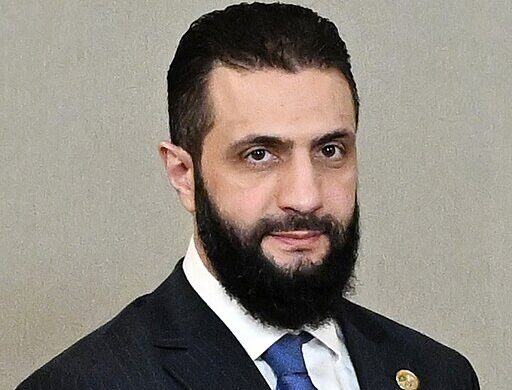A September summit in Washington may mark the beginning of Israel-Syria normalisation under US patronage
In a move that could redefine Middle East geopolitics, Israeli Prime Minister Benjamin Netanyahu and Syrian President Ahmed al-Sharaa are expected to meet in Washington this September to sign a groundbreaking security agreement, according to a report by i24NEWS citing sources close to Damascus.
The summit, to be held at the White House and hosted by US President Donald Trump, is planned just days before the United Nations General Assembly convenes in New York. The meeting would represent the most direct and public engagement between Israel and Syria in decades—potentially laying the groundwork for full diplomatic normalisation.
“This would be a massive geopolitical shift,” one regional analyst told i24NEWS. “Syria and Israel have technically been at war for over 50 years.”
The agreement, which is still under negotiation, is said to involve security guarantees and regional coordination, though key sticking points remain unresolved. Chief among them is Israel’s concern about withdrawing from buffer zones in the Golan Heights, a region it captured from Syria in 1967 and later annexed—a move unrecognised by the international community.
Israel is reportedly deeply uneasy about Sharaa’s limited control over southern Syria, where various militias, some with Iranian ties, continue to operate autonomously. This issue poses a direct threat to Israeli border security, military officials have warned.
The United Arab Emirates is heavily involved in backchannel diplomacy, helping facilitate discussions between the two adversaries. Gulf sources confirmed to i24NEWS that extensive mediation efforts are ongoing to ensure both sides can walk away with guarantees they can sell to their respective publics.
Embed from Getty ImagesMeanwhile, confusion surrounded a claim from a Syrian outlet that Israeli National Security Council chief Tzachi Hanegbi met secretly with Sharaa in Abu Dhabi. Israeli officials strongly denied the report, noting Hanegbi is currently in Washington with Netanyahu’s delegation.
“There was no such meeting,” one Israeli official stated flatly, calling the report “misinformation.”
Images circulated Tuesday showed UAE President Sheikh Mohamed bin Zayed Al Nahyan bidding farewell to Sharaa in Abu Dhabi—a symbolic moment hinting at the UAE’s key role in these unfolding events.
Sources in Sharaa’s administration have made one point clear: any deal will prohibit Israeli military operations inside Syria, a stance Damascus refuses to compromise on. However, Israel is expected to insist on preserving its right to act unilaterally against threats, particularly if it agrees to withdraw troops from the Golan buffer zone.
This clash of red lines remains a significant hurdle. Still, the willingness of both leaders to move forward with face-to-face talks signals an unprecedented level of readiness to explore compromise.
Trump, eager for another Middle East diplomatic triumph during an election year, is positioning himself as the peacemaker, similar to his 2020 Abraham Accords. Hosting Netanyahu and Sharaa at the White House would symbolise US dominance in brokering regional deals and offer a rare photo opportunity tying Trump to potential peace between two historic enemies.
“Trump wants to walk both men into the Oval Office and walk them out with handshakes and headlines,” said one diplomatic source.
The final format and terms of the security pact are still being shaped, and it remains unclear how much it will resemble a formal normalisation agreement or if it will be limited to military coordination and border de-escalation.
But if the September summit materialises, it would mark the most significant Israeli-Syrian engagement since the 1991 Madrid Conference, and possibly the beginning of a new chapter in a region long defined by hostility.
